
The three-row midsize SUV segment is extremely competitive, offering a maximum of utility in a practical size. But even in this competitive segment, the Palisade is an extremely popular choice. Some of the reasons are pretty obvious, like the fact that the Palisade is better looking than its competitors. The full list of reasons why is much longer than that, but to really show that, we’re going to have to take a closer look at how those competitors measure up.
Hyundai Palisade VS Volkswagen Atlas
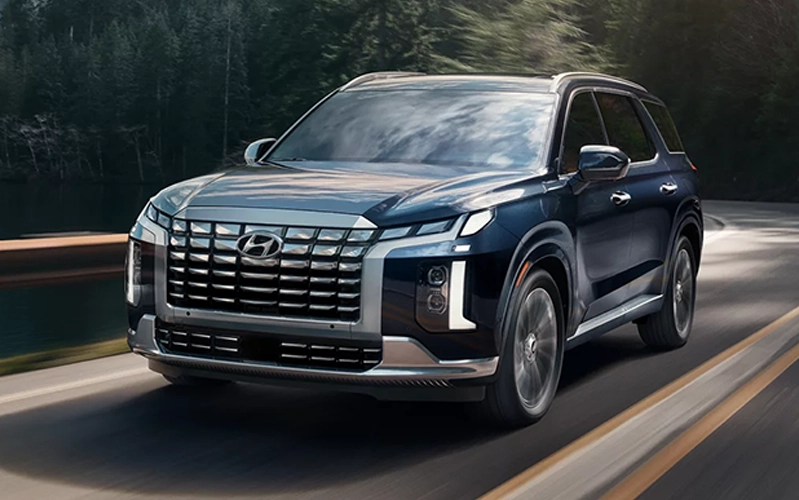
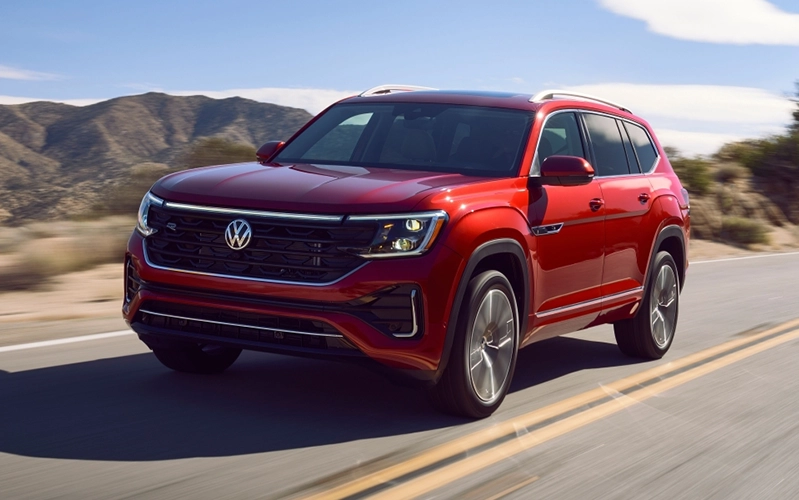
| 2025 Hyundai Palisade SE | VS | 2025 Volkswagen Atlas SE |
| $37,200 ✓ | MSRP* | $38,200 |
| 291 ✓ | Horsepower | 269 |
| V6 ✓ | Engine | I4 |
| 5,000 pounds ✓ | Towing Capacity | 2,000 pounds |
| 8 ✓ | Seats | 7 |
| 4 ✓ | 12V Outlets | 1 |
| Standard ✓ | Traffic Sign Recognition | Requires Higher Trim |
| Standard ✓ | Integrated Navigation | Requires Higher Trim |
| Standard ✓ | Parking Sensors | Requires Higher Trim |
| 36 months / 36,000 miles ✓ | Included Maintenance | 24 months / 20,000 miles |
For our first comparison, we’re looking at the Volkswagen Atlas, which is close in price, but the Palisade still maintains an advantage. The Palisade comes with more horsepower, and although it might not seem like a huge advantage, there’s more to it than that. The Palisade comes with a standard V6, which gives you smoother and more consistent power delivery than the turbocharged I4 in the Atlas. This is part of the reason why the Palisade can tow more than the Atlas - a lot more. You can carry more people in the Palisade as well, which is always helpful.
Standard equipment is a definite strength for the Palisade. While these two vehicles both come with 5 USB ports, the Palisade also has 4 12V outlets for increased versatility, compared to just one in the Atlas. There is all kinds of advanced tech available for the Atlas, but very little of it comes standard, while the same features, like Traffic Sign Recognition, integrated navigation, and parking sensors, are all standard on the Palisade. Not all mainstream automotive brands include routine maintenance with the price of a vehicle, but Volkswagen does. This would be a big win if it weren’t up against the Palisade, which offers quite a bit more.
Hyundai Palisade VS Toyota Highlander
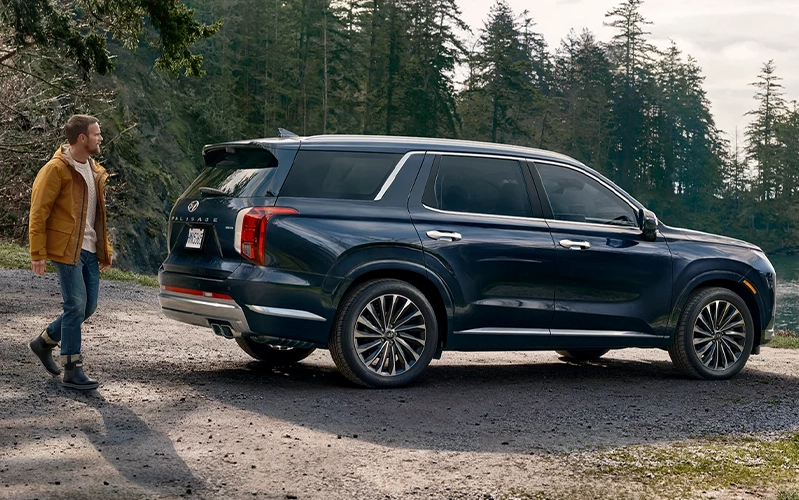
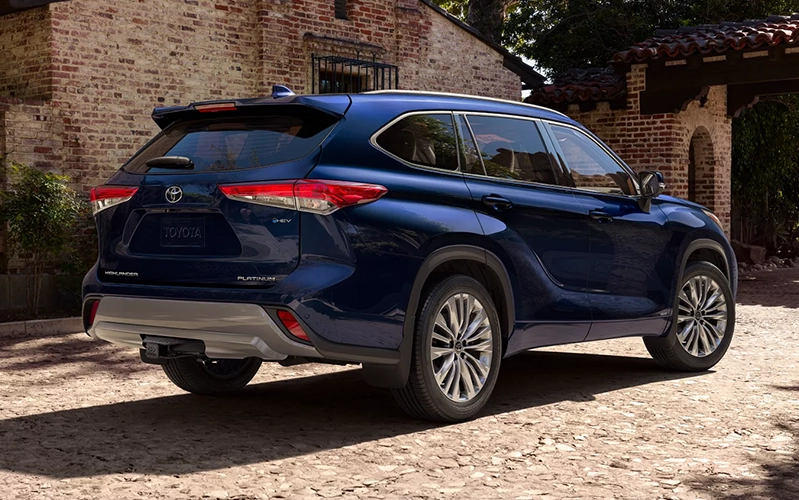
| 2025 Hyundai Palisade SE | VS | 2025 Toyota Highlander LE |
| $37,200 ✓ | MSRP* | $39,820 |
| 291 ✓ | Horsepower | 254 |
| V6 ✓ | Engine | I4 |
| 44.1 inches / 42.4 inches / 31.4 inches ✓ | Legroom (1st row / 2nd row / 3rd row) | 42 inches / 38.7 inches / 28 inches |
| 18 cubic feet ✓ | Rear Cargo Space | 16 cubic feet |
| 12 inches ✓ | Infotainment Touchscreen | 8 inches |
| Standard ✓ | Integrated Navigation | Optional |
| Standard ✓ | Rear Cross Traffic Alert | Requires Higher Trim |
| Standard ✓ | Parking Sensors | Requires Higher Trim |
| 36 months / 36,000 miles ✓ | Included Maintenance | 24 months / unlimited miles |
Our next comparison is to the Toyota Highlander. The Highlander became popular by being one of the early three-row midsize SUVs, but it’s starting to show its age when compared to newer models like the Palisade. The Palisade has a price advantage over the Highlander, and the more powerful standard V6 outshines the competition again as well. Interior space is a major advantage for the Palisade, which is able to offer more legroom in all three rows and more cargo space behind the third row at the same time. In most cases, you would have to make some kind of compromise with one of those areas, but the Palisade doesn’t ask this of you, even though the difference in overall length is less than two inches.
Standard equipment is a major strength once again, starting with the 12-inch infotainment touchscreen. The 8-inch screen in the Highlander might have been a fairly standard size a few years ago, but most other brands in the industry have since left the Highlander behind. Tech features like integrated navigation, Rear Cross Traffic Alert, and parking sensors are all wins for the Palisade. And while the Palisade once again offers a longer included maintenance period, we figured we’d change things up and highlight that it also offers a much longer period of included roadside assistance.
Hyundai Palisade VS Subaru Ascent

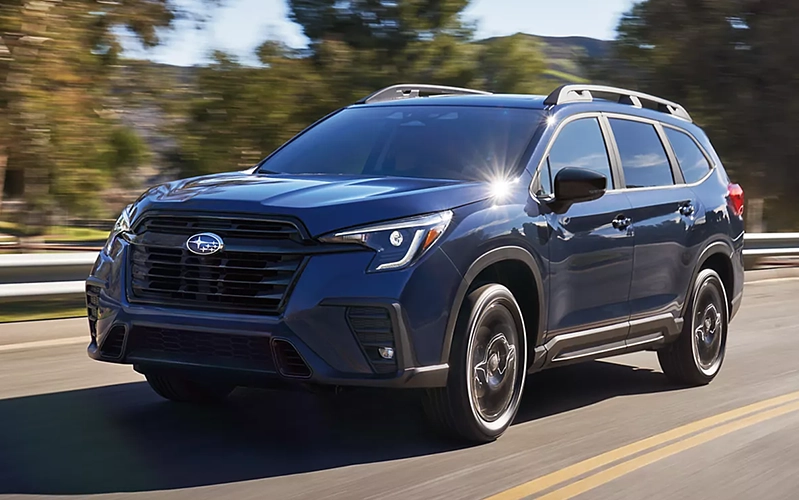
| 2025 Hyundai Palisade SE AWD | VS | 2025 Subaru Ascent Premium |
| $39,200 | MSRP* | $38,910 |
| 291 ✓ | Horsepower | 260 |
| V6 ✓ | Engine | H4 |
| 8-speed automatic ✓ | Transmission | CVT |
| 44.1 inches / 42.4 inches / 31.4 inches ✓ | Legroom (1st row / 2nd row / 3rd row) | 42.2 inches / 38.6 inches / 31.7 inches |
| 4 ✓ | 12V Outlets | 2 |
| Standard ✓ | Parking Sensors | Not Available |
| Standard ✓ | Traffic Sign Recognition | Requires Higher Trim |
| Standard ✓ | Integrated Navigation | Requires Higher Trim |
| 36 months / 36,000 miles ✓ | Included Maintenance | None |
For our last comparison, we’re looking at the Subaru Ascent. The Ascent is popular because of its standard all-wheel drive, but if you look at the price of the Palisade when equipped with the available all-wheel drive, it’s nearly identical. Subaru doesn’t use inline engines, so the Ascent instead has a horizontally-opposed four-cylinder engine. But despite the unique layout, the power produced is in keeping with the other four-cylinder vehicles in this segment, i.e., less than the V6 in the Palisade. Conventional automatic transmissions are normal in this segment, as CVTs struggle with larger vehicles, but Subaru uses one anyway. The Ascent has 0.3 inches more legroom in the third row, but the Palisade has more room in the first two rows by a much wider margin. The Palisade also offers a bit more cargo space in the back.
The four 12V outlets in the Palisade once again give it an advantage, and the usual tech features like parking sensors, Traffic Sign Recognition, and integrated navigation are again strengths for the Palisade. The Ascent is more typical of vehicles in this segment, in that it doesn’t come with any included routine maintenance. That’s a pretty easy number to beat, but the Palisade beats it by a lot.
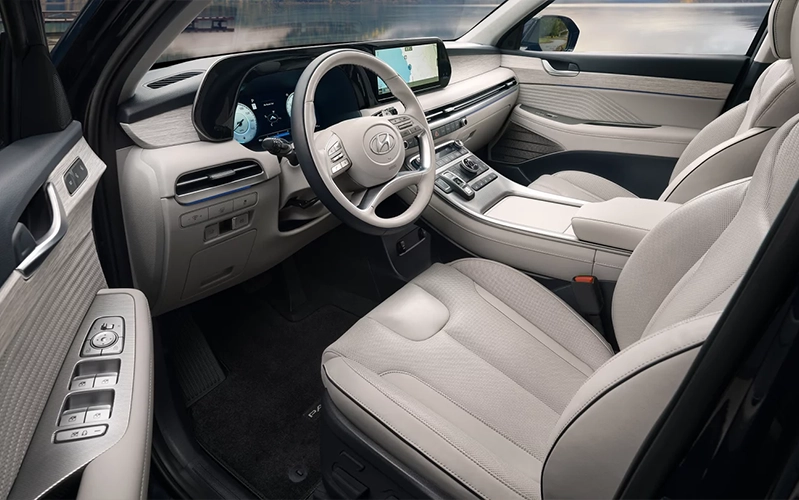
Winner - Hyundai Palisade
The Palisade comes out first in a number of different categories, from horsepower to driver’s aids. But what’s important to note is that all of those areas combined add up to a vehicle that is clearly a far better value for money. It’s really not even close. But many things, like the smooth-running standard V6, or the luxuriously spacious legroom, really need to be experienced in person. Crestmont Hyundai can help with that, and help you pick out the trim and options that are right for you.
*MSRP excludes freight charges, tax, title, and license fees. Freight charges and actual dealer prices may vary. Vehicles displayed may contain optional equipment at additional cost. Accessory items shown may vary according to model and illustration.

